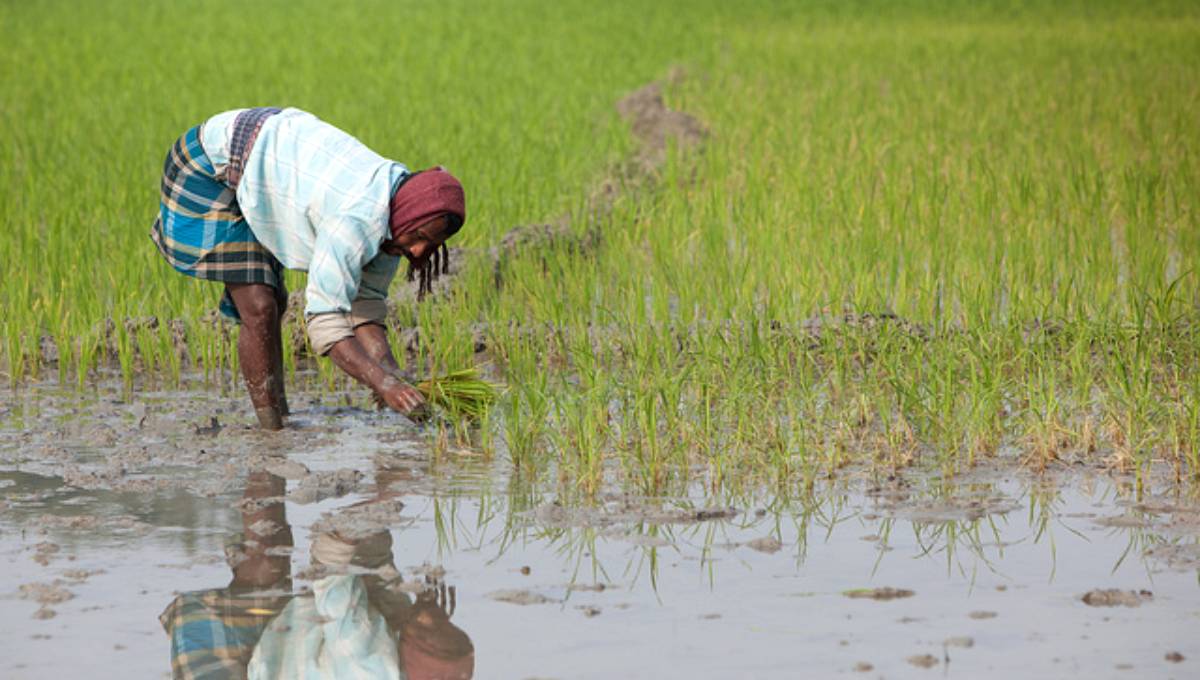SAM
Published:2020-01-23 00:16:58 BdST
Boro output may drop this season
FT ONLINE
Cold wave coupled with dense fog has caused a delay in Boro farming in the country this year, raising concerns over achieving the target of its cultivation and production.
Market experts, however, predicted that the production of this major food crop might decline this season due to foggy weather conditions and persistent low prices of paddy in the domestic market.
They said many farmers in Rangpur, Rajshahi and Khulna divisions were switching to maize and other crops this year which might also cause a decline in rice production this season.
Farmers planted Boro seedlings on 0.942 million hectares of land as of January 19 this year which was 1.322 million hectares during the corresponding period of last year, a decline by about 0.4 million hectares, according to Monitoring Unit under Field Service Wing of Department of Agriculture Extension (DAE).
A monitoring unit report showed that farmers prepared 0.268 million hectares of seedbeds this Boro season which was 0.282 million hectares last year.
However, the government has set a target to produce 20.04 million tonnes of rice from 4.68 million hectares of land this year.
During the Boro season last year, the production of rice hit an all-time high of 20.038 million tonnes from 4.9 million hectares of land.
When asked about such a sharp drop in cultivation, Deputy Director of Monitoring Unit Md Mizanur Rahman said that Boro cultivation has been delayed in many regions due to continuous foggy weather and poor condition of seedlings.
"As the weather condition is improving gradually, we are still hopeful that we can achieve the target of acreage by March 15," he said.
Boro cultivation continues from December to mid-March and harvest goes on from April to June.
Farm economist Prof Golam Hafiz Kennedy said Boro cultivation is set to decline this year, not only for foggy weather condition but also for persistent low prices of paddy.
"We are getting reports from the northern, north-western and south-western regions that many farmers were either reducing their land allocation for Boro or switching to maize, vegetables, tobacco and other crops," he added.
Mr. Kennedy said farmers were incurring losses since the Boro season last year when paddy prices declined to just Tk 380-450 a maund against the production cost of Tk 850-Tk 960.
They also suffered massive losses during the just-concluded Aman season as paddy prices were still hovering between Tk 540 and Tk 650 a maund across the country against the production cost of Tk 800-Tk 900 based on regions.
Prof Abdul Hamid, chairman of Bangladesh Agrarian Research Foundation (ARF), said it would be tough to cover such a big gap (of cultivable land) in the next one and a half months.
"The more you delay in plantation, the more you welcome diseases like fungal blasts for Boro crop."
Prof Hamid, also an agronomist, further said overall acreage might decline this year which could cause a decline in rice production.
Md Waliul Kabir Chowdhury, a farmer, said he has transplanted Boro seedlings on his six bighas of land at Dimla in Nilphamari this year.
He said he grew Boro on his 32 bighas of land last year and lost 80 percent of investments. "I have cultivated maize on most of my land this year and Boro on the rest of the land for our own consumption."
Farmers are also growing tobacco and vegetables etc on their lands to avert losses, he said, adding that paddy prices were Tk 540-Tk 550 a maund in his area now.
Prof Kennedy said farmers didn't get any direct subsidy even after incurring losses in the last two cropping seasons.
Rice and paddy procurement by the government also could not give the farmers any relief, he said, and suggested stepping up market monitoring.
Government agencies should provide authentic data on overall production so that policymakers could take immediate action for quick imports of the staple, he said.
Rice production hit an all-time high of 37.2 million tonnes in the fiscal year 2018-19 of which Boro accounts for a record of 20.038 million tonnes, according to the Bangladesh Bureau of Statistics provisional data.
Unauthorized use or reproduction of The Finance Today content for commercial purposes is strictly prohibited.


